Activities with recycling and ecology project for early childhood education.
Goals:
· Understand the period of decomposition of each element;
· recognize the elements harmful to nature;
· Awareness of the importance of recycling for the environment;
· Identify to select materials;
· Understand the recycling process;
· Awakening and developing the potential abilities of students.
· Awaken each child to the interrelationships between the elements that make up the environment, of which human beings are an integral part.
· Constructive action, which brings its own benefits and to society.
Contents:
· The plastic
· The paper
· The glass
· The metal
Strategy:
We will start the project talking about man in his relationship with nature, where it has always been balanced, but in recent decades, these have been destroying the landscape, annihilating flora and fauna, largely deteriorating this planet: they destroy forests, pollute waters, annihilate animal species and their own species. In this way, we must make them aware that if we cannot eliminate waste, we can perfectly reduce it. Because recycling allows you to reduce the volume of waste creating new options.
We will build scrap toys made by themselves.
Explain to students how recycling works:
– reduces soil, water and air pollution.
– reduces waste
– prevents deforestation
– improves city cleanliness.
Show which are the recyclable materials:
– glass- liter of drinks, glasses (except light bulbs)
– plastics – milk bags, margarine pots, and others
– paper – computer paper, cardboard, magazine and others
– metal – cans, toothpaste tubes, bottle caps, nails and others.
Teach to separate the garbage and awareness of this act.
After talking and observing about recycling, we will make recycled papers.
Assessment:
The assessment will be done through observation and recording of students' statements about what they learned about recycling. We will also take notes of behavior in relation to awareness of the importance of the act.
VIII – Evaluation System
According to Law 9,394/96, it establishes in Section II, referring to Early Childhood Education, article 31 that: “... the evaluation will be carried out through monitoring and recording of its development, without the objective of promotion, even for access to education fundamental”.
The evaluation aims to verify the evolutionary process, performance and performance of children. In this process, in order to guarantee the effectiveness of the teaching work, it is important that the teacher have greater autonomy as they develop instruments that organize their practice. reflective. One of the instruments is the systematic observation of activities that, when meaningful and integrated, allow the teacher to perceive the children's difficulties and progress.
In order for the assessment to contribute to enriching the teacher's work, it is necessary for the teacher to register it. The records of observations must be systematic and the teacher must have a place (a notebook, a file, in which to take notes). These notes will be made individually for each student.
By practicing recording observations and exchanging experiences with their peers, the teacher will discover the most suitable way to assess their working conditions.
The assessment is not restricted to children, but should also reach teachers, specialists and other professionals involved in the pedagogical action. be done systematically through self-assessment, group discussion and analysis of the results obtained, with a view to replanning and evaluating the practice pedagogical.
Did you like it? Share this post on your social network
 BICHOS JARDIM PROJECT – PRE II
BICHOS JARDIM PROJECT – PRE II
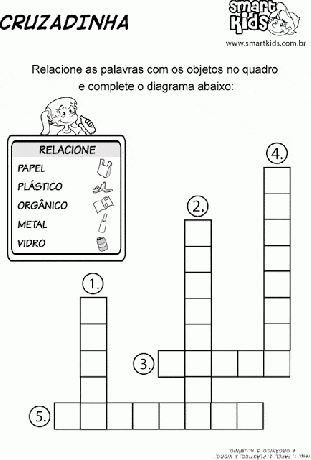 5th year environmental activities
5th year environmental activities
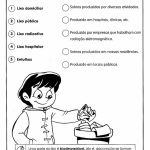 3rd year environmental activities
3rd year environmental activities
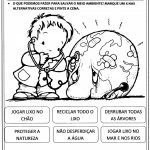 ACTIVITIES ON THE ENVIRONMENT
ACTIVITIES ON THE ENVIRONMENT
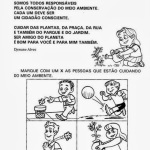 2nd year environmental activities
2nd year environmental activities
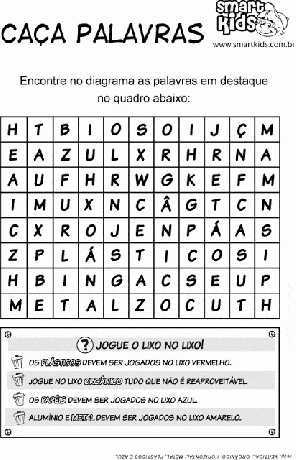 4th year environmental activities
4th year environmental activities
This site uses Akismet to reduce spam. Learn how your comment data is processed.